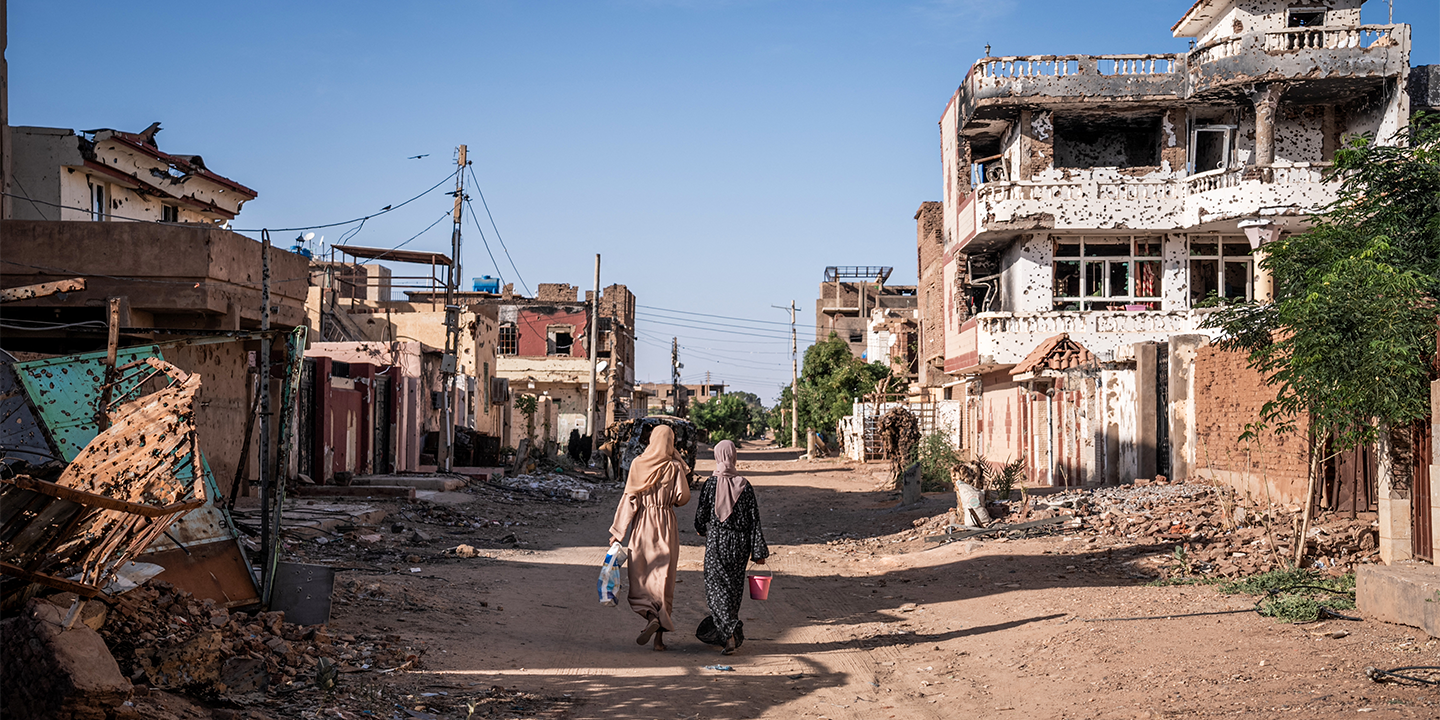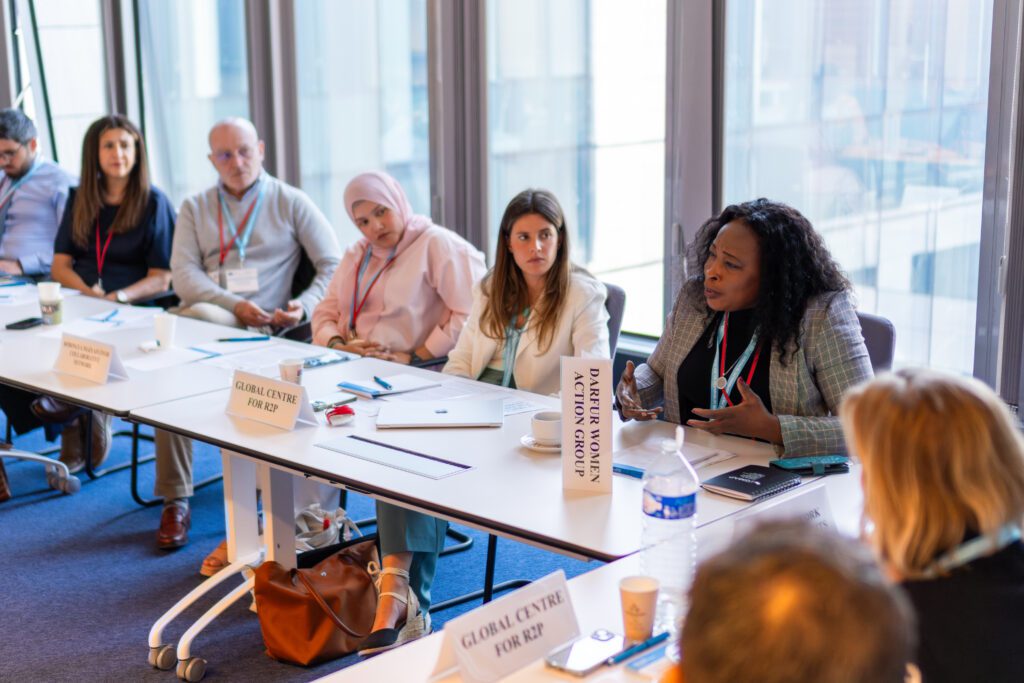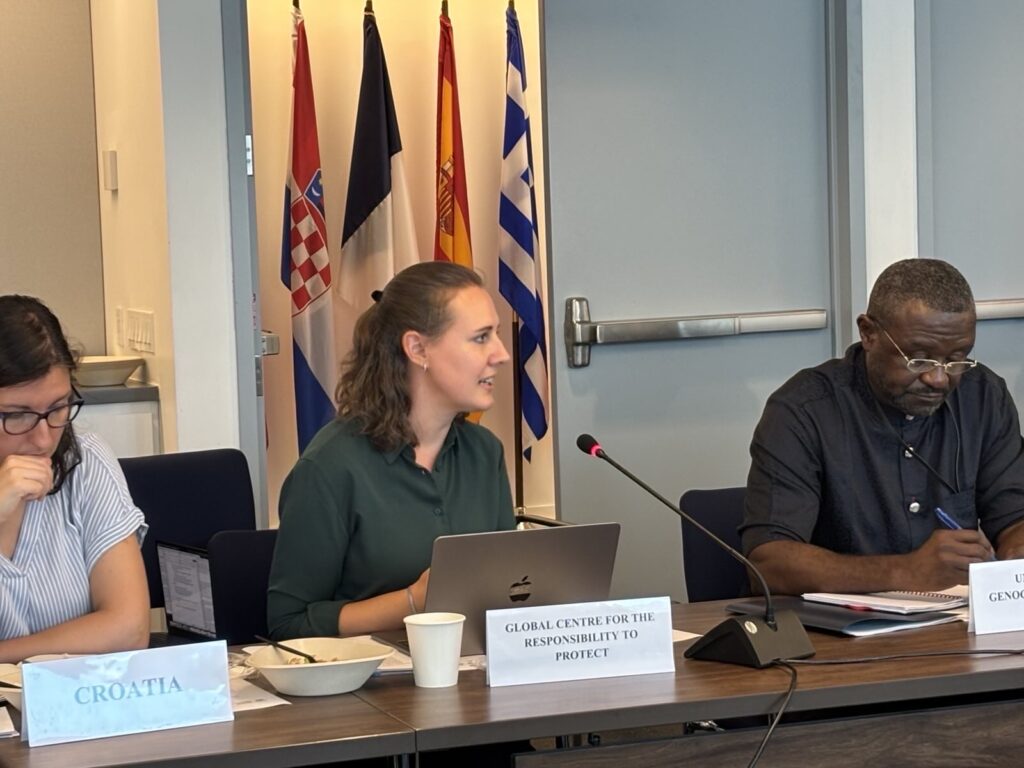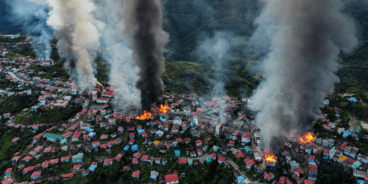
Global Centre Country Advocacy: Sudan
Since the outbreak of the conflict in Sudan between the Sudanese military and paramilitary Rapid Support Forces in April 2023, populations have endured war crimes and crimes against humanity, while non-Arab communities in Darfur are facing possible acts of genocide as a result of ethnically motivated killings. For over two years the Global Centre has engaged in a range of advocacy initiatives to refocus the international community’s attention on addressing the conflict through an atrocity prevention lens. The conflict has evolved into a complex, protracted armed conflict characterized by multiple actors, layers and drivers. While international efforts, including that of the UN Security Council (UNSC), have largely centered on brokering a national-level ceasefire between the two primary warring parties, the Global Centre emphasized the importance of understanding and addressing the different trajectories of violence, and to look to the violence in Darfur through a different lens. By engaging with member states, civil society actors and the UN Secretariat, the Global Centre highlighted that each dimension of the conflict requires tailored responses to effectively mitigate specific atrocity risks and protect vulnerable populations.
Engaging the UN Security Council on Atrocity Risks in Sudan
The Global Centre organized various roundtable meetings bringing together member states, including Security Council members, civil society organizations, Sudanese human rights defenders and humanitarian experts. These meetings provided member states with unique access to firsthand knowledge of the atrocities taking place, enabling more informed discussions on the escalating crisis and strategies to strengthen the international response. The discussions focused on the urgent need for atrocity prevention measures and greater humanitarian access, as well as ensuring accountability for ongoing crimes.
To draw attention to the imminent threat of atrocity crimes and genocide in Darfur, the Global Centre released two urgent alerts in June 2023, February 2025 and October 2025. Global Centre Executive Director Savita Pawnday also released an op-ed warning of genocide alongside the Co-Director of Protection Approaches, Kate Ferguson. In April 2025, to mark two decades since the genocide in Darfur and the adoption of R2P, the Global Centre’s Sudan expert, Juliette Paauwe, published a commentary titled, “Twenty years of the Responsibility to Protect and the unfulfilled promise in Darfur.”
At the UNSC, the Global Centre, in collaboration with partner organizations and Sudanese stakeholders, successfully advocated for a key provision in a UN resolution requesting the Secretary-General develop recommendations for the protection of civilians in Sudan. This led to a coordinated UN response, with contributions from the Office for the Coordination of Humanitarian Affairs, the Department of Political and Peacebuilding Affairs and the Department of Peace Operations. During consultations with international and local civil society organizations, the Global Centre emphasized the need for an atrocity prevention lens and concrete strategies to mitigate risks. As a result, the UN Secretary-General’s report, presented to the UNSC in October 2024, helped catalyze discussions among Council members on potential measures to operationalize civilian protection efforts.
During High-Level Week of the UN General Assembly’s 80th session in September 2025, the Global Centre, in partnership with the Permanent Mission of Luxembourg, organized a roundtable discussion for current and incoming UNSC members, as well as states that are candidates for candidates for the 2027-2028 Council term. The event convened a diverse group of Sudanese civil society actors to share firsthand insights on the current situation. Participants discussed concrete and actionable measures the international community should take to address the widespread human rights violations and atrocities, the escalating humanitarian crisis and ongoing insecurity in the country. The discussion also highlighted immediate responses and longer-term strategies for accountability, protection of civilians and support for civil society.

Advocating for sustained human rights monitoring in Sudan
Before the outbreak of the conflict in 2023, the Global Centre had been actively engaged in multiple advocacy efforts to maintain international scrutiny and human rights monitoring in Sudan. We advocated strongly to protect the mandate of the Independent Expert on Sudan, which was ultimately terminated in 2020. Following Sudan’s removal from the Human Rights Council’s agenda in October 2021, the Global Centre advocated for the continuation of human rights monitoring, particularly in the context of the volatile situation, and supported the establishment of the designated expert mandate in 2021. The Global Centre continued to urge member states to make adjustments to this mandate in response to the military coup in October 2021 and the subsequent conflict to ensure it accurately reflected the evolving situation. Additionally, we called for numerous special sessions – starting in 2019 – and engaged in advocacy related to Sudan’s Universal Periodic Review process.

At the Human Rights Council, in 2023 the Global Centre advocated for a special session and the establishment of an investigative mechanism to collect and preserve evidence of human rights violations and identify those responsible. Although an emergency session in May did not result in the adoption of a resolution, the Global Centre continued extensive bilateral advocacy with member states in Geneva and across European capitals, ultimately contributing to the establishment of a Fact-Finding Mission (FFM) on 11 October. The Global Centre also joined 45 other organizations in delivering a statement during informal consultations on the resolution, emphasizing the need to shift the narrative from conflict prevention to atrocity prevention. Since its establishment, the Global Centre has been actively engaged in advocacy campaigns to support the annual renewal of the FFM.
Related Content
